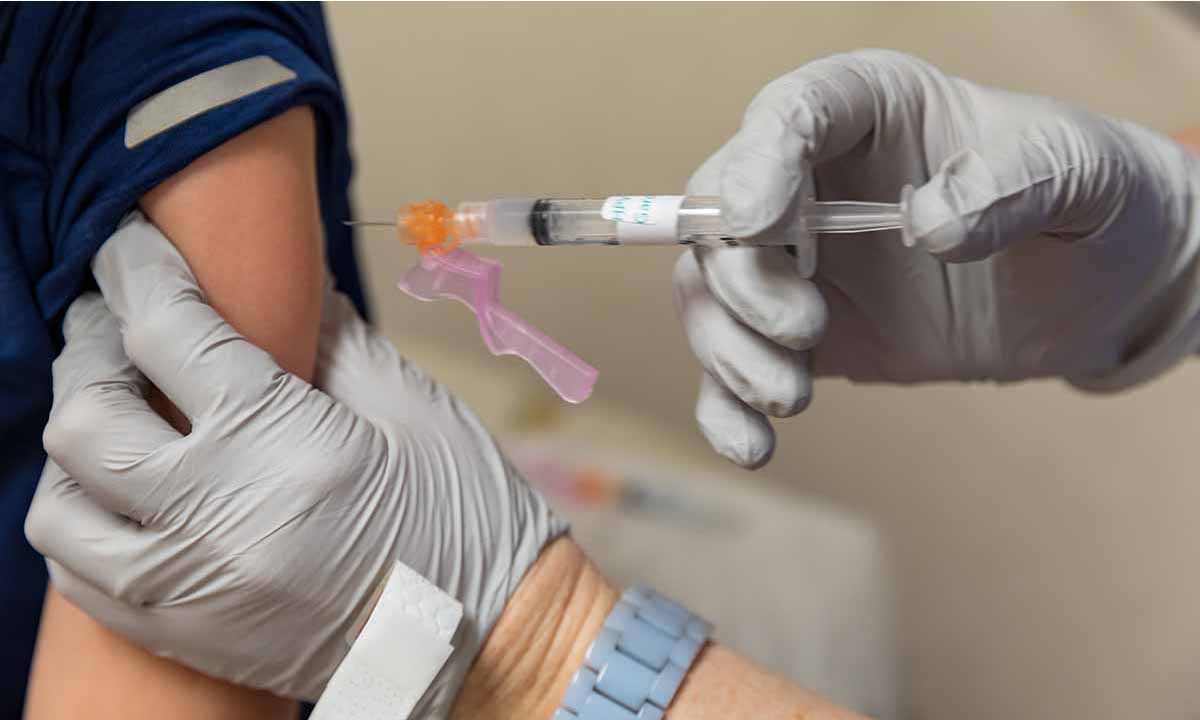
With COVID-19 still at the forefront of our nation’s health priorities, there is increasing concern about an overlapping flu season. Patients who are already deferring routine and even acute care needs may not be willing to come into the medical office to receive a flu vaccination. Health experts warn that, without optimal management of the flu, healthcare resources could be overwhelmed. This year it may be more important than ever to make the flu vaccine available and strongly encourage your established patients to get vaccinated.
The symptoms of COVID-19 are like those of the flu, including fever, cough, sore throat, body aches and nausea. The annual flu vaccine is an established and generally effective effort to protect patients from the anticipated flu strain. In a time when patients do not feel safe to come into the office, it’s important to consider alternatives outside of the office setting.
To reduce COVID-19 exposure and attain physical distancing, many offices are setting up alternate vaccination clinics for established patients. These clinics may be off-site and set up as a mobile or “drive-up“ flu shot clinic, which eliminates the need for patients to get out of their vehicle. Many practices plan to offer outdoor drive-up areas, with vaccination tents like COVID testing sites. A physician or advanced practice provider must be immediately available for urgent issues as well as for patient questions. Other options may include walk-through sites (churches, community centers, and tents).
To assist with this effort and offer general guidance, The Centers for Disease Control has a dedicated webpage entitled, “Guidance for Planning Vaccination Clinics Held at Satellite, Temporary, or Off-Site Locations.” Best practices for alternate vaccination sites require additional considerations during the COVID-19 pandemic, including physical distancing, personal protective equipment (PPE), and enhanced sanitation efforts. These additional considerations are called out in boxes throughout the CDC guidance. However, because COVID-19 guidance is evolving, infection control guidance for healthcare professionals about coronavirus (COVID-19) should be checked on a regular basis for updated information. Consider signing up for the email updates on the website to stay informed of any changes.
The National Adult and Influenza Immunization Summit also released a “Best practices for vaccination clinics at satellite, temporary or offsite locations” checklist that can be found on the CDC website or here. NOTE that the CDC recommends a 15 minute waiting area after the injection is administered (whether in a vehicle or on foot) to ensure patients do not have an adverse reaction or need care following the vaccination. This checklist also addresses elements that should be a routine part of your documentation with all vaccinations. If the practice intends to administer vaccines to new patients, keep in mind that the administrative requirements of establishing care for a new patient would apply (intake forms, HIPAA, creating a medical record, etc.)
Vaccine consent is not specifically addressed on the checklist. Generally, the theory of implied consent is enough for the flu vaccine. However, it is important to ask patients appropriate screening questions and offer the patient an opportunity to ask questions prior to receiving the vaccine. At a minimum, be sure to document each of the following:
If signed consent is preferred by the practice, to expedite the process, established patients could be asked to print the documents beforehand and bring them to the location where they can be signed. There could be digital consent via a mobile device as well.
With some time and effort directed toward planning for alternative locations for flu vaccinations early in the season, the goal of record-breaking flu vaccinations will be met.
The contents of The Sentinel are intended for educational/informational purposes only and do not constitute legal advice. Policyholders are urged to consult with their personal attorney for legal advice, as specific legal requirements may vary from state to state and/or change over time.